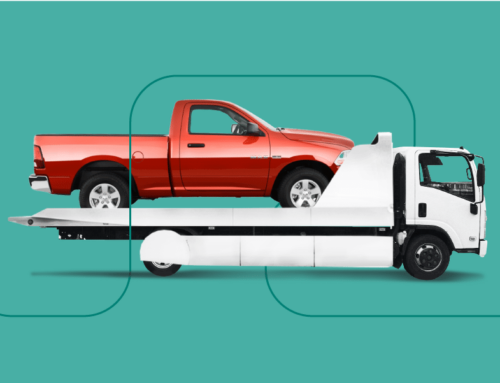Few experiences are both thrilling and scary as acquiring your first credit card. You suddenly have the ability to buy goods with money you don’t have, and as soon as you do, the entire country is watching how you use it.
Your credit score, which ranges from 300 to 900, tells Canadian lenders whether you’re trustworthy and deserving of a good deal on a mortgage, credit card, car loan, or personal loan. Keeping your score on the higher end of the scale is critical. But where do you begin?
What does the average Canadian have to do to start building their credit score? In this guide, we’ll break down everything you need to know about credit in Canada.
How Credit Works – The Basics
Your credit report is a collection of information about your credit history. When you borrow money or seek credit for the first time, your credit report is established. Credit bureaus, often known as credit reporting organizations, get information from lenders about your accounts.
The information in your credit report determines your credit score, which is a three-digit number. It might be anything from 300 and 900. It demonstrates how successfully you handle credit and how hazardous a lender would be lending you money. Equifax and Transunion are the companies that produce your credit score and report.
Credit bureaus must comply with restrictions that determine who has access to Canadian citizens’ credit records, and how such entities may use that information. Banks, credit card firms, insurance companies, and government agencies are just a handful of the businesses that have access to your information.
A lender or another institution may request a credit check or a copy of your credit report. They are requesting access to your credit record at the credit bureau when they do so. An inquiry is made on your credit report as a consequence of this.
Immigration to Canada and Credit History
You might be wondering, “Does bad credit affect immigration to Canada?” If you have a negative bad credit, that will result in a low credit score in most countries where credit is used, such as the United States and Canada. But will a low score impede one’s journey to becoming a Canadian citizen?
The immigration procedure has minimal to no impact on credit ratings. This is due to the fact that your credit score from your native country, good or poor, will not transfer to Canada. This is excellent news if you have bad credit in your own country. Not so much if you’ve built a stellar score. Americans who relocate to Canada may be startled to learn that their good credit score back home does not necessarily translate to immediate trust from Canadian lenders. While negative credit will not follow you around the world, neither will excellent credit.
How to start building credit in Canada? Once you’ve arrived in Canada, you’ll need to establish a good credit history. You may start establishing good credit by getting a credit card and using it carefully, using reputable credit-building tools, and being cautious to prevent credit card fraud and identity theft schemes.
Understanding Credit Mix
When it comes to credit building for newcomers, you might be a little unfamiliar with some key terms. One term you should become more familiar with is “credit mix.”
To understand credit mix, you need to understand the factors that go into a Canadian credit score. Equifax and Transunion are the main Canadian credit bureaus. They have noted that credit scores ultimately come down to the following:
- History of payments (35%)
- Overall credit utilization (30%)
- Credit length (15%)
- Credit mix (10%)
- Hard inquiries (10%)
Credit mix is basically the diversity of your credit “portfolio.” Lenders will be impressed if you can use a credit card like a pro. What about auto loans, mortgages, school loans, and credit lines? Borrowing history that is diversified might demonstrate to lenders that you are responsible with a variety of loans. If you want to improve your score, it’s important to consider credit mix in addition to the other credit factors mentioned above.
The Average Credit Score in Canada
The Canadian credit score ranges from 300 to 900. The average credit score Canada citizens have in 2022 is approximately 650.
What Credit Score Do New Canadians Start With?
If you are planning on immigrating to Canada, you might be concerned that you won’t have a good credit score when you become a citizen. For native Canadians who are entering adulthood and need to start building credit, you might also be concerned that your starting score is in the negative. Luckily, this isn’t the case at all.
The good news is that you will not begin from the bottom of the scale, at 300. Missed payments and bankruptcies have tarnished a person’s image, thus this is designated for them. The truth is that you begin with no score at all.
When you initially use the algorithm, your credit score will most likely fall within the fair area, right in the middle. You haven’t had much opportunity to cause harm, but you haven’t demonstrated your worth either. Until you reach the highest echelons of the scale, you won’t be able to receive large loans with low-interest rates.
When to Start Building Credit?
For new Canadians who want to start building credit, the best time to start is right now. For Canadian citizens, the best time to start building credit is when one enters adulthood. However, building credit should be a learning experience while also not negatively impacting your credit score. Because of this, it is usually recommended that individuals who start their credit-building journey start with a secured credit card.
When a credit card is “secured,” it indicates that in order to create an account, money must be placed with the credit card provider. This sum of money is basically a security deposit. And, like the security deposit offered to a landlord to rent a property, it’s maintained by the credit card issuer while the account is open.
Outside of where one should start, what is the actual fastest way to build credit? How can one build their credit or improved their credit score quickly? There are many things you can do. Start by consistently looking into your credit report. Always pay your bills on time. When using a credit card (even a secured one), try to keep a low balance, around 10-15% of the allotted credit. And, of course, do not borrow money you cannot easily pay back. Marble offers a creative solution called Boost, to help thousands of Canadians increase their credit scores in a sustainable way. Boost utilizes a loan repayment structure that reports your monthly subscription payment to the credit bureaus.
Using a Credit Score Simulator
If you need a little extra boost in terms of improving your credit score, we recommend using Marble Point Deduction Technology’s Credit Score Simulator. Using this tool is fairly easy. Simply set a target score based on your own credit history and financial goals. You’ll what to find your credit score and know what it is, so this step is very beneficial. From there, your credit report will be analyzed and you will be given recommendations on how to improve your actual credit score. With Marble Point’s Credit Score Simulator, you can start to build credit in 3 months or even less. It’s as simple as signing up for the platform!
How was our guide to credit repair and building as a Canadian? Tell us what your credit-building journey has been like in the comments below.






